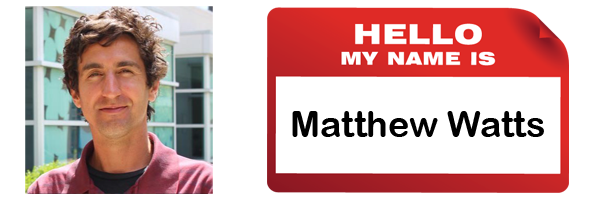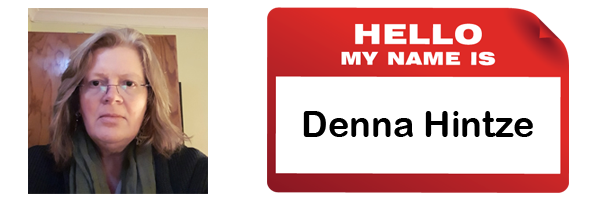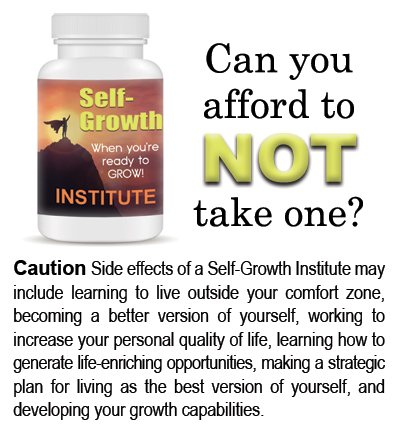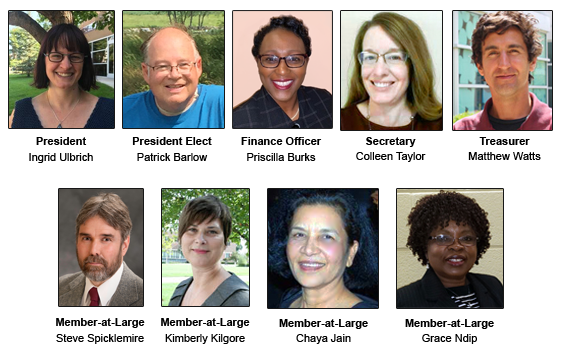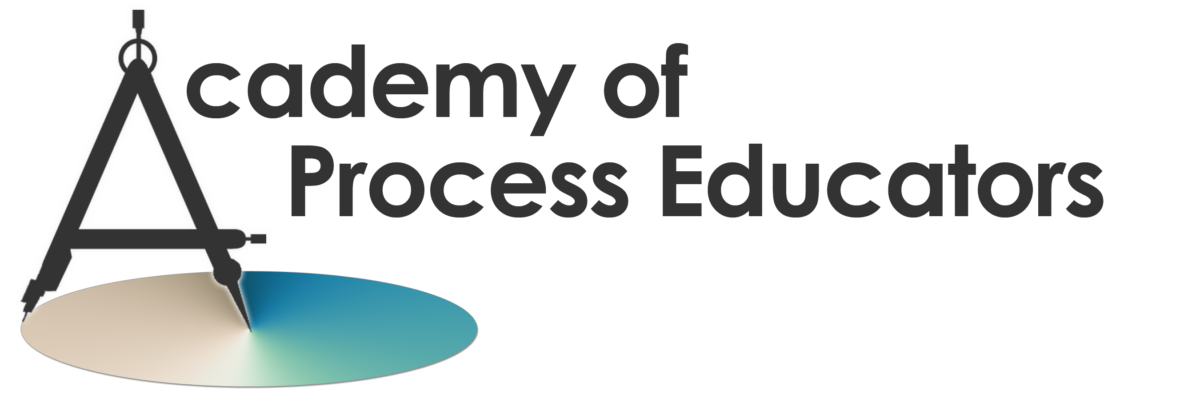|
WELCOME and THANK YOU for reading! This newsletter covers what happened in April and will give you a heads up on what to look for in May and the months following.
We've added lots of cool new stuff in hopes of making these monthly emails more fun, interesting, and interactive!
In this issue (please note the links below will only work when viewing this newsletter in a browser): |
| |
 |
President Elect
Wm Patrick Barlow |
|
| |
|
We’re less than 40 days away from the 2023 Academy Conference! It’s happening June 9 and 10, all online!
Register now to get the early bird rate (ends May 5).
Read more to learn about the Conference Program, the SPECIAL Pre-Conference Orientation, details about our Keynote speaker and the Plenary Panel! |
| |
|
This is a pre-conference workshop offered by Pacific Crest. |
| |
|
Many colleges have realized that students could become more prepared for the challenges of their collegiate experience. Participants will have the opportunity to become familiar with the existing Pacific Crest Learn to Learn for Success (L2L4S) course design and then work to adapt it for their own contexts. The critical components of course design will be covered, including long-term behaviors, intentions, learning goals, learning outcomes, knowledge table, themes, methodologies, learning skills, activity table, performance criteria, performance tasks, assessment system, evaluation system, and syllabus. Participants will be placed in teams, given time to edit and update their thinking into their team’s design document. |
| |
|
Cost: $100 ($50 for conference attendees) |
| |
|
You asked:
What are the most important features of a PE classroom? I found these two resources linked below but is there a PE resource?
|
| |
|
Contextualizing Learning Skills |
| |
 |
Communication Director
Denna Hintze |
|
| |
|
What active listening LOOKS like (non-verbal)
- Eye contact; focusing on the other person
- Leaning forward a little or nodding...(continue for more)
What active listening SOUNDS like (verbal)
- Restating what someone says
- Reflecting what someone is feeling... (continue for more)
|
| |
 |
Model active listening: Children learn by example, so model it. But also point it out in others when it happens. And absolutely be ready for your young one to insist that YOU listen actively when they have something to communicate. Teaching this skill means practicing it yourself…possibly with a dedication you never imagined!...(more) |
|
| |
|
Academy Professional Development |
| |
|
May is Mentoring Skills Month! |
| |
 |
Professional Development Director
Tris Utschig |
|
| |
|
A skill such as being able to “provide growth feedback” to a mentee sounds great, right? Many of us would love to do that. That was certainly true for me, your friendly Academy Professional Development Director, Tris Utschig :-). Yet, when it comes right down to it, how do we do actually put that skill into action? Saying to a mentee that “you have really improved your problem-solving skills over the past month” may make them feel good, yet it doesn’t crystallize for the mentee how they grew that capability and what opportunities they can pursue to continue growing. So, what to do? (Psst. Continue reading!!) |
| |
|
This monthly column shares a small idea or low-stakes practice that everyone can try out whether in a classroom setting or other learning context. Remember that all current Academy members have free access to the e-Faculty Guidebook through the Member’s site!
STRATEGY: Establishing Shared Expectations
FROM: 3.2.1 Overview of Facilitation
“Establish shared expectations—The outcomes of any facilitated process must be defined clearly, connected to its goals, and agreed upon by the participants and facilitator. These outcomes should be... |
| |
|
This column features two Academy members each month, until we run out of members. And then we'll just get more! The point is that we're curious about each other and few people enjoy reading professional bios. Each member is asked the same set of questions:
- 3 books you love and why
- The best class you ever took and why
- The class you would most want to teach, if you could choose
- One piece of advice you'd give to a teacher about to begin a teaching career
|
| |
|
3 books I love:
- How Yoga Works by Michael Roach and Christie McNally
This is a book that not only changed my life, but has changed the life of most people I know that have read it. It allows a westerner to approach the teachings of the Yoga Sutra through a very captivating allegory. Most of all, I love it because it helps me to be a better person.
- Godel, Escher, Bach by Douglas Hofstadter
One of the few books I have re-read several times. I love the connections between such disparate fields. It helps me to see the interconnectedness of all things. Best of all, there are fun activities and problems to ponder. If you like art and music then check this one out for sure.
- Quantum Psychology by Robert Anton Wilson
My favorite author is hands down RAW and most people would probably recommend Cosmic Trigger as a first book, but Quantum Psychology is my favorite because of how powerful of a model it proposes for the human mind. The connections between our evolution and childhood development along with an unabashed look at drugs and the sexual experience make this another paradigm shifting book.
The best class I ever took and why:
Computational solid mechanics - This was a pilot course offered through the math department at James Madison University. At the time I was a Physics major, but this is what made me want to shift to applied math. The professor, Dr. Paul Warne was very passionate and we had a small tight knit group. The course was taught through a series of Maple (computational math software) notebooks that had us model solid objects with sets of finite elements and apply various materials properties to predict stress/strain/deformation behavior. I had already learned to code with Fortran, but this felt like I was really making magic happen.
The class I’d most want to teach if I could choose: I would like to teach a course on Real Analysis. These are the most rigorous courses you take in a Math PhD program and part of the reason I never got a PhD. I figure if I had to teach the course then I might finally master the content. We have an undergrad version of that in the catalog at my current college, but I am not sure if we actually run it these days.
One piece of advice I’d give to a teacher about to begin teaching: When I first started teaching I figured I could develop course materials for each class in my first five years and then be done with course design. It turns out that course design is an ongoing process and I make improvements continuously so the work is never done. So I would admonish new teachers from thinking they can perfect any course design for good and be ready to keep improving until they stop teaching. |
| |
|
3 Books I Love:
- De Rerum Natura (On the Nature of Things) by Lucretius
This (along with Thus Spake Zarathustra by Nietzsche) was one of my major A-HA! discoveries as an undergrad. I first encountered Lucretius in a Latin course, where I translated him, and later as a Philosophy of Science grad student. It is about the philosophy of Epicurus and tackles everything from atomic theory, to chaos, to why we should not fear death, and how to live with serenity. It is an abiding guide to living a gentle and ethical life. I was fortunate enough to give the “Lucretius Lectures” to 4 years of Humanities students at UT El Paso. I started each one by playing “Imagine” by John Lennon – it is a beautiful statement of Epicurean philosophy.
- Olympos / Ilium by Dan Simmons: As someone who dearly loves science fiction, this is perhaps the most amazing act of world creation imaginable. A far distant future with post-humans, but one sentient mechanical/biological creature is fascinated by Shakespeare's sonnets and another with Proust's "In Search of Lost Time". It is humanity abiding in the interactions of its art and creations when even no human is involved. It is terrifying and beautiful and weaves together the Illiad, the Odyssey, Stephen Hawking’s physics and a lot in between.
- Good Omens by Terry Pratchett & Neil Gaiman: Oh how I love Terry Pratchett! And this is laugh-out-loud funny and irreverent. It is a commentary on humanity -- our best and funniest worst. The TV series did a good job with this but the book is better. I've worn out 3 copies. This sort of stands for all the Discworld books too, though. When I moved to Norway, Knut Are and I thought about consolidating our Terry Pratchetts (we both had all of them) but neither of us could give any up. So we have doubles of all, half with the European cover art and half with the American cover art.
THE BEST CLASS I EVER TOOK AND WHY:
The History of Mathematics because we started with Babylonian mathematics and had to use base-60 and write in cuneiform. Then Egyptian hieroglyphics. Then derive and prove the Pythagorean Theorem and so on. It gave me a fundamental appreciation for the complexity of cognition and calculation possible when you start with only a stick and a piece of string.
THE CLASS I’D MOST WANT TO TEACH IF I COULD CHOOSE:
I would give my eyeteeth to teach a survey of the philosophy of science, focusing most on the world-changing concept of indeterminacy (thank you, quantum mechanics). We’d learn about Heisenberg’s Uncertainty Theorem, Schrödinger’s cat, some spooky action-at-a-distance, superstrings, n-dimensional space, and so on, but mostly how these ideas play havoc with our socio-cultural-religious ideas of certainty and Truth (thank you Plato and Aristotle).
PIECE OF ADVICE I’D GIVE (if asked) TO A TEACHER ABOUT TO BEGIN TEACHING:
They don't know how terrified you might be. They don't know how lost you sometimes feel. So don't worry about needing to come across as authoritative and all-knowing. Instead, use humor, a willingness to laugh at yourself and make mistakes. This means the world to your students, many of whom are terrified and feeling lost. |
| |
 |
Communication Director
Denna Hintze |
|
| |
|
As Process Educators, we’re big believers in relevance, especially the relevance of what our students learn...and that means how they apply it in the world beyond the classroom. We know that simply giving students a learning activity or course content is generally not enough to motivate them to do anything other than go through the motions or memorize information.
Step 1 of the Learning Process Methodology (which is the heart and soul of activity and curricula design) is, “Why?” This is because the motivation to learn depends upon the relevance of learning to personal, educational, career, and life goals. The “Why” statement in a learning situation makes clear why learning about a given topic is important and how it is relevant to the needs, interests, or concerns of the students. For a strong “Why” statement, it is critical to think beyond immediate needs and the perspective of the instructor... |
| |
 |
Secretary
Colleen Taylor |
|
| |
The AoPE Board met on February 28th with a great number of members present sharing their thoughts and concerns. Patrick Barlow gave an update on the progress of the conference planning including a consideration of software for purchase by the Academy, Panopto...
|
| |
|
The next board meeting is scheduled for
May 23 @ 5:30pm EST.
The other Spring Board Meeting will occur on May 23rd at 5:30 PM; all board meetings are now 90 minutes in length. All are invited to attend! The Zoom information is available on the Member’s Site.
|
| |
|
Including (BUT NOT LIMITED TO)
workshops you'd like to attend! |
| |
|
The Current Academy of Process Educators Executive Board |
| |
|
Click the image below to learn more about us! |
| |
|













